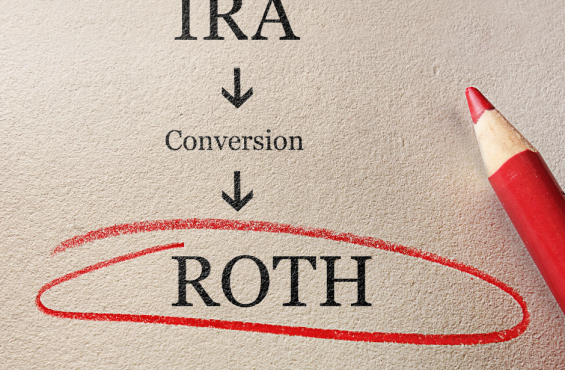Taxes could be going up in the coming years, so this could be a good time to take advantage of your current tax rates.
One important move that FundX investment advisors are considering for our wealth management clients is converting clients' IRAs into a Roth IRAs before the end of 2020. You may want to do the same.
To clear up a common misconception, you don’t have to convert all your IRA assets into a Roth IRA at once. You control the amount you convert in any given calendar year, and you may find that it’s actually beneficial to do partial conversions as part of your yearly tax planning.
How does a Roth IRA conversion reduce taxes?
Here’s a quick refresher on how IRAs and Roth IRAs are taxed:
- When you contribute to a traditional IRA, your contributions are tax-free, but you are taxed on any money you withdraw from the account and are subject to required minimum distributions (RMDs).
- With a Roth IRA, you’ve already paid taxes on any money you contribute to the account; however, you can take tax-free withdrawals, and there are no RMDs.
When you convert an IRA to a Roth IRA, you’ll pay income taxes on the money you’re moving out of your traditional IRA. However, if you expect to be in a higher tax bracket in the future, then it could be advantageous to pay taxes now when your taxes are low and plan to withdraw the money tax-free when taxes could be higher. A Roth conversion could also simplify your retirement investing since you’ll reduce your RMDs in future years.
Why 2020 may be a good time for an IRA conversion
Most equity portfolios took a hit during the downturn earlier this year, and some investors failed to participate in the recovery. If you convert a portion of those assets to Roth, you could have your portfolio recover in a tax-free (Roth IRA) vehicle. Next year, the tax rate for that income bracket could be higher.
The changes in RMD rules in 2020 provide another reason to consider a Roth conversion this year. Since required minimum distributions (RMDs) were waived for 2020, you aren’t paying taxes on your RMD this year; instead, you could use the tax-bill dollars for a Roth conversion. Normally, RMDs cannot be converted. You’d have to pay taxes on any assets you converted to a Roth IRA on top of the taxes for your RMD.
How much should you convert to a Roth IRA?
The amount you decide to convert to a Roth should be based on two factors:
- How far is your taxable income for 2020 from the top range of your current tax bracket? For example: if you’re married and your joint income is $250,000 for 2020, you can convert up to $76,000 before you reach the top of your tax bracket ($326,000).
- Do you have enough cash in your savings that you can pay the tax bill for this Roth conversion?
Roth IRAs can help with estate planning
Roth conversions can also be a smart way to leave money to your family and children. If your adult children inherit your IRA during their peak earning years, you’ll have added to their taxable income. If, on the other hand, they inherit a Roth IRA, they’ll be able to let the assets grow tax free for 10 years and never have to pay tax on the assets as they come out of the Roth.
We strongly recommend that you speak with your financial planner and CPA soon to determine if this is the right time for you to convert to a Roth IRA and how much you might convert.
Curious about how a FundX advisor might help you manage your investment taxes? Click here to set up a time to speak with an advisor.
